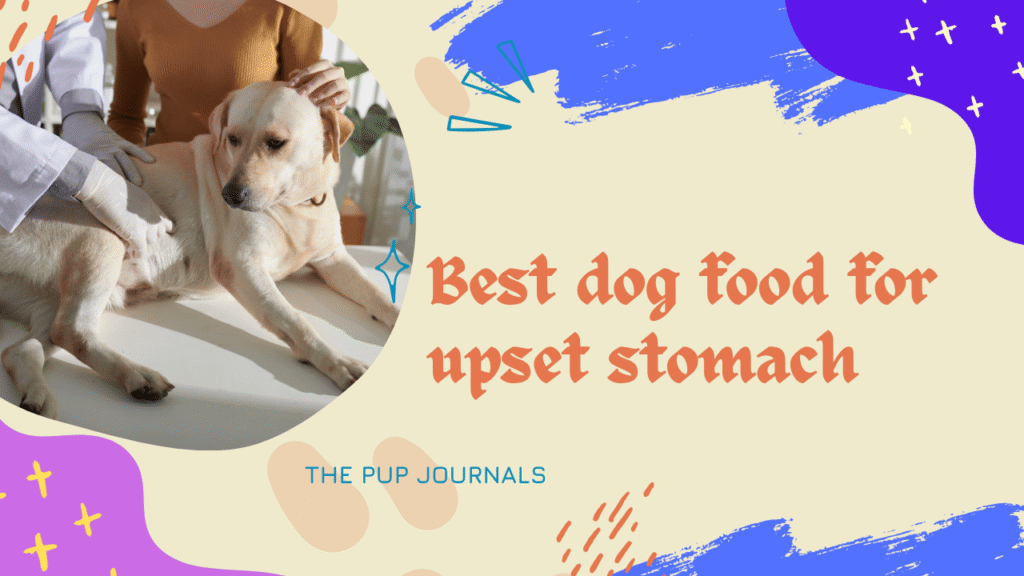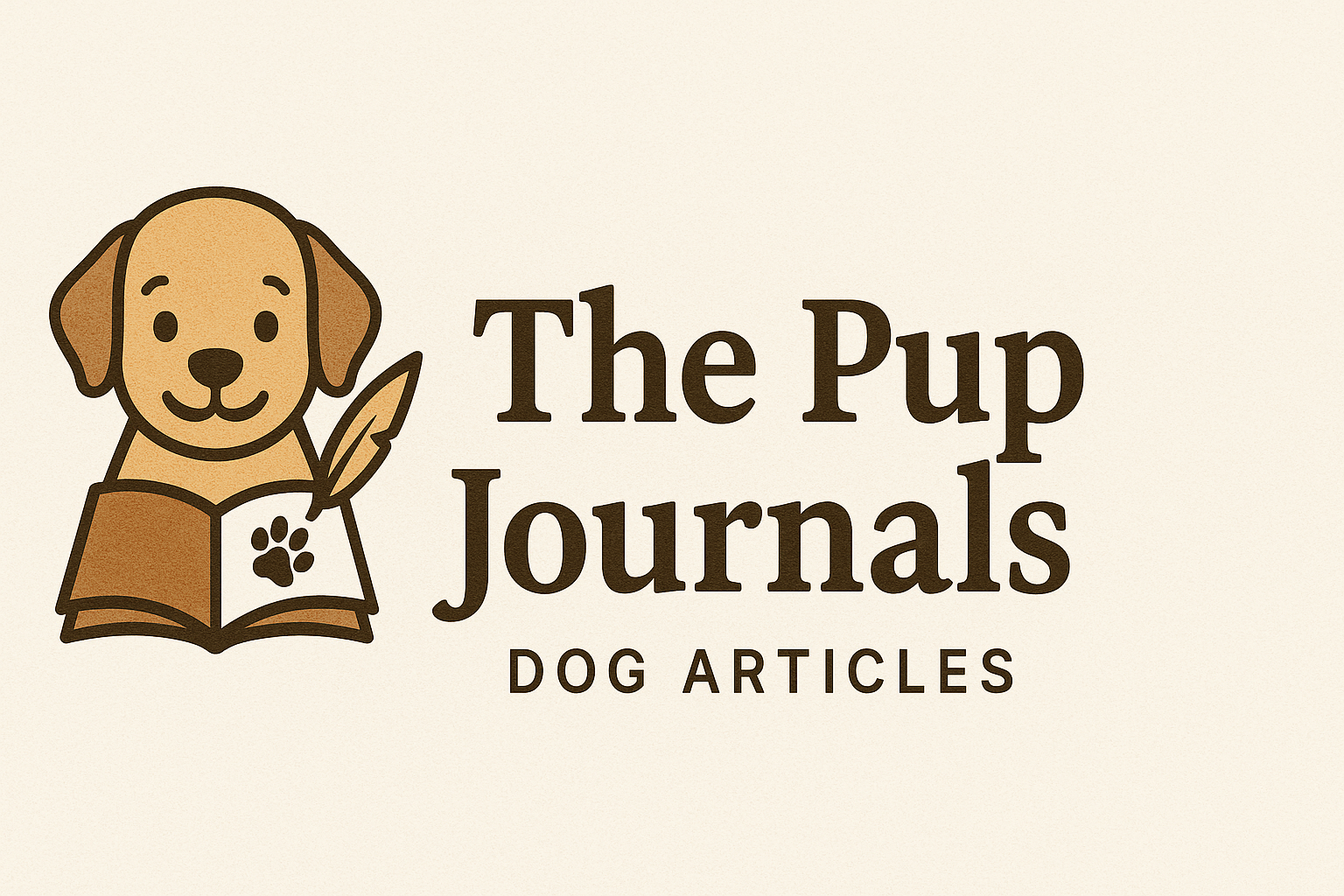
Table of contents
When your pooch comes down with an upset stomach, it can be just as stressful for you as it is for them. Digestive distress in dogs can show up as vomiting, diarrhea, gas, bloating or just plain lethargy—and while a quick trip to the vet is always the safest bet, you can often help soothe your buddy’s tummy with the right diet. So there is a perfect guide on Best Dog Food for Upset Stomach.
Why a Special Diet Matters
Just like us, dogs can react poorly to rich, greasy, or unfamiliar foods. Sudden diet changes, food intolerances, bacterial overgrowth or viral infections can all spark that telltale “uh-oh” in your pup’s belly.
A Bland or Digestive-support Formula:
- Eases the workload on the gut: Simple carbs and lean proteins are easier to digest than heavy fats or complex grains.
- Supports healthy flora: Formulas with added probiotics or prebiotics help replenish the good bacteria your dog needs to break down food and fight off pathogens.
- Reduces inflammation: Ingredients with omega-3 fatty acids (think fish oil) can help calm an irritated intestinal lining.
Before switching foods, check with your veterinarian—especially if symptoms persist more than 24 hours, or if your dog is very young, older or has other health issues.
What to Look for in an Upset-Stomach Formula
When browsing labels, keep an eye out for these gut-friendly features:
- Single-source protein: Foods that list only one animal protein (like chicken, turkey or salmon) help you pinpoint—and avoid—any potential allergens.
- Digestible carbohydrates: Plain white rice, oatmeal, potatoes or pumpkin are easier on the tummy than corn, wheat or peas.
- Probiotics & prebiotics: Live cultures (Lactobacillus, Bifidobacterium, etc.) and plant-based fibers (chicory root, beet pulp) feed healthy gut flora and support regularity.
- Omega-3 fatty acids: Fish oil or flaxseed can help reduce intestinal inflammation and support overall immune function.
- No artificial additives: Skip foods with artificial colors, flavors or preservatives, as these can sometimes irritate sensitive systems.
Top Picks for Tummy-Troubled Dogs
Hill’s Prescription Diet i/d Digestive Care
A gold standard in veterinary nutrition, Hill’s i/d is specially formulated for dogs with chronic GI issues. It features highly digestible ingredients and a clinically proven probiotic blend to help restore healthy flora. Because it’s prescription-only, you’ll need your vet’s OK, but many pros agree it’s worth the extra step.
Purina Pro Plan Veterinary Diets EN Gastroenteric
Another prescription formula, the Pro Plan EN Gastroenteric diet focuses on easy-to-digest rice and fish meal proteins. It’s fortified with both antioxidants and essential vitamins to support overall health while your dog’s gut heals.
Blue Buffalo Basics Limited Ingredient Diet
Blue Buffalo’s Basics line uses a novel protein (like duck or salmon) paired with a single carbohydrate source (potato or pumpkin). No wheat, soy or corn, and it includes guaranteed probiotic support. For mild tummy trouble, this can often work wonders without requiring a vet prescription.
Natural Balance L.I.D. Limited Ingredient Diets
Packed with a single protein source and pumpkin fiber, Natural Balance L.I.D. is known for being gentle yet satisfying. It’s free from chicken, beef, dairy, eggs and all common grains, making it a great choice if you suspect a food intolerance.
Royal Canin Gastro Intestinal Low Fat
If your vet suspects your dog’s upset stomach is connected to pancreatitis or high-fat sensitivity, this formula is low in fat but still delivers complete nutrition. It also contains specialized fibers to help manage both loose stools and constipation.
Bland Diet: When You Need Immediate Relief
Sometimes, especially in acute cases (one-time upset, no other red flags), a quick homemade “bland diet” can soothe things while you pick up a specialty kibble:
- Boiled chicken breast: Skinless, boneless, poached or boiled—no seasoning.
- Plain white rice: Cook until very soft.
- Canned pumpkin: Not pumpkin pie mix—just pure pumpkin puree. A tablespoon or two can help firm up loose stool.
Feed small portions (about ¼ cup for every 10 pounds of body weight) every 4–6 hours. After 24–48 hours symptom-free, gradually reintroduce your dog’s regular food over 3–4 days.
Transitioning Back to Regular Food
Whether you’ve chosen a vet-prescribed diet or a limited-ingredient over-the-counter brand, transitioning slowly is key. Overly abrupt switches can trigger more tummy trouble. Here’s a simple schedule:
- Days 1–2: 75% special diet + 25% regular food
- Days 3–4: 50% special diet + 50% regular food
- Days 5–6: 25% special diet + 75% regular food
- Day 7 onwards: 100% regular food (if all looks good)
If at any point your dog’s symptoms return, pause the transition and give the special diet more time—or circle back with your veterinarian.
When to Call the Vet?
While many cases of Mild gastrointestinal upset clear up with dietary support, more worrisome signs include:
- Continuous vomiting or diarrhea for more than 24 hours
- Blood in vomit or stool
- Lethargy, weakness or collapse
- Signs of dehydration (dry gums, sunken eyes, reduced skin elasticity)
- Abdominal pain or bloating
Don’t hesitate to seek professional care—your dog’s health (and your peace of mind) is worth it.
Final Thoughts
A sensitive stomach doesn’t have to mean long-term dietary drama. With a little patience, the right gut-soothing ingredients and guidance from your veterinarian, you can get your furry friend back to tail-wagging form in no time. Now you can choose Best Dog Food for Upset Stomach whenever you need to.
Reference

